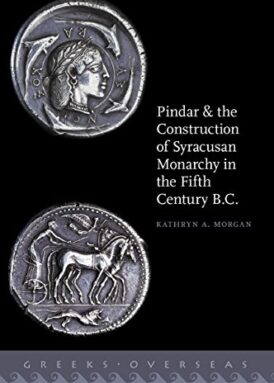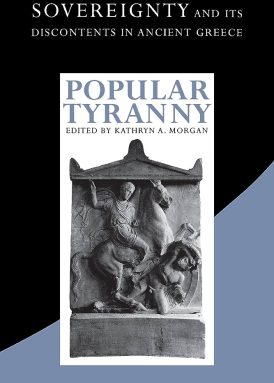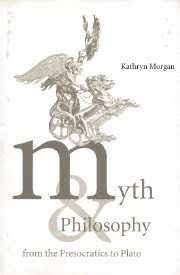Kathryn Morgan

Professor
Fields of Interest: Classical Greek Literature, Greek Intellectual History
Education
- PhD, Classics, University of California, Berkeley, 1991
- MA, Greek, University of California, Berkeley, 1984
- BA, Greek and Latin summa cum laude, Bryn Mawr College, 1982
Research
Kathryn Morgan is a Professor in the Department of Classics at UCLA. Her interests range broadly over Greek literature of the fifth and fourth centuries BC. She regularly teaches graduate seminars in Attic tragedy, Pindar and Greek lyric, and Plato, and her research oscillates between projects connected with Plato and with Pindar. The former is represented by her book Myth and Philosophy from the Presocratics to Plato, and by her ongoing involvement in the series Studies in Ancient Greek Narrative (published by Brill), where she is responsible for the chapters covering Plato. Pindar is the subject of her most recent book, Pindar and the Construction of Syracusan Monarchy in the Fifth Century B.C. (2015), where she examines Pindar’s victory odes for Hieron of Syracuse and the program of tyrannical self-representation to which they contributed. Ongoing research includes book projects on Plato’s conception of history and on historical narrative in the Persians of Aeschylus. She has served on the Program Committee, Board of Directors, and the Nominating Committee of the Society for Classical Studies. In 2004 she was honored with Distinguished Teaching Awards from the American Philological Association and UCLA (Distinction in Teaching at the Graduate Level). She was department Chair from 2014-2020.
Books
-

- Pindar and the Construction of Syracusan Monarchy in the Fifth Century B.C.
- Oxford University Press, 2015
-

- Popular Tyranny: Sovereignty and its Discontents in Ancient Greece (ed.)
- University of Texas Press, 2003
-

- Myth and Philosophy from the Presocratics to Plato
- Cambridge University Press, 2000
Articles
- “Eros in the Platonic Frame.” In Framing the Dialogues. How to Read Openings and Closures in Plato, edited by Eleni Kaklamanou, Maria Pavlou, and Antonis Tsakmakis. Leiden: Brill, 2020: 154-175.
- “Simonides and the Diplomacy of Victory.” In Simonides Lyricus. Essays on the ‘Other’ Classical Choral Lyric Poet, edited by Peter Agócs and Lucia Prauscello. Cambridge Classical Journal, supplementary volume 42. Cambridge: The Cambridge Philological Society, 2020: 151-175.
- “Plato.” In Characterization in Ancient Greek Literature. Studies in Ancient Greek Narrative, Volume Four, edited by Koen de Temmerman and Evert van Emde Boas. Leiden: Brill, 2018: 445-464.
- “Plato’s Goat-Stags and the Uses of Comparison.” In Plato and the Power of Images, edited by Radcliffe G. Edmonds III and Pierre Destrée. Leiden: Brill, 2017: 179-198.
- “Epic and Comedy in Plato’s Protagoras.” In Plato’s Poetics. Essays from Beijing, edited by Rick Benitez and Keping Wang. Berrima Glen Berrima, 2016: 151-169.
- “Domesticating Invective in Plato’s Laws.” In Savage Words: Invective as a Literary Genre, edited by Massimo Ciavolella and Gianluca Rizzo. New York: Agincourt Press, 2016: 106-126.
- “Solon in Plato.” In Solon in the Making: The Early Reception in the Fifth and Fourth Centuries, edited by Gregory Nagy and Maria Noussia-Fantuzzi. Trends in Classics 7.1 (2015): 129-150.
- “Autochthony and Identity in Greek Myth.” In A Companion to Greek Democracy and the Roman Republic, edited by D. Hammer. Chichester, West Sussex: John Wiley & Sons, 2015: 67-82.
- “Praise and Performance in Plato’s Laws.” In Mousikē, Performance and Culture in Plato’s Laws, edited by A. Peponi. Cambridge: Cambridge University Press, 2013: 265-293.
- “Imaginary Kings: Visions of Monarchy in Sicilian Literature from Pindar to Theokritos.” In Sicily: Art and Invention between Greece and Rome, edited by Claire L. Lyons, Michael Bennett, and Clemente Marconi. Los Angeles: Getty Publications, 2013: 98-105.
